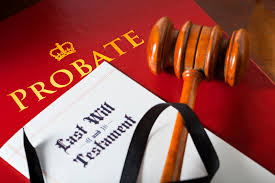A revocable living trust is a cornerstone of smart estate planning. If you’re considering how to protect your assets and make things easier for your family, understanding the benefits of a living trust is essential. Here’s why a living trust is often recommended as part of an estate plan in California.
1. Avoids Probate
One of the primary advantages of a living trust is that it helps your estate avoid probate—the court process required to settle a will.
Assets placed in a living trust do not go through probate, which means your beneficiaries can receive their inheritance faster and with fewer costs. In California, probate can last several years and can be expensive due to statutory fees for the attorney and the personal representative. By using a living trust, these fees and delays can be avoided, saving both time and money for your family.

Living Trust helps to avoid probate proceedings.
2. Minimizes Emotional Stress on the Family
Probate can be stressful and overwhelming, particularly during a period of grief. By organizing and streamlining asset distribution, a living trust reduces the emotional strain on your family. Your loved ones can focus on healing rather than dealing with the complexities of the probate process.
3. Preserves Privacy
Unlike probate, which is a public process, a living trust keeps your estate matters private. Without a trust, the details of your assets and who inherits them become part of the public record. A revocable living trust avoids this disclosure, ensuring your family’s financial and personal information remains confidential.

Having a Living Trust reduces the stress on your family.
4. Prevents Conservatorship
A living trust allows you to appoint a trusted person to manage your assets if you become disabled. Without a trust, the court would need to appoint a conservator or guardian to handle your property, which can be time-consuming, costly, and restrictive. A living trust avoids this process entirely.
5. Provides Complete Flexibility and Control
A revocable living trust is fully flexible. You can change, amend, revoke, or cancel it at any time during your lifetime. The assets in the trust remain under your control, giving you peace of mind that your estate will be managed according to your wishes.
6. Ensures Continuity of Asset Management
A living trust allows for smooth management of assets even after your death. This is especially important if your beneficiaries are not ready or able to manage their inheritance. With a trust, investments and property can continue to be managed efficiently without interruption.
7. Additional Legal and Tax Advantages
Beyond probate avoidance and family considerations, a revocable trust can also offer important legal and tax benefits. These can be tailored to your unique situation and will be discussed in detail in the continuation of this series: Advantages of Living Trust: Part 2.
